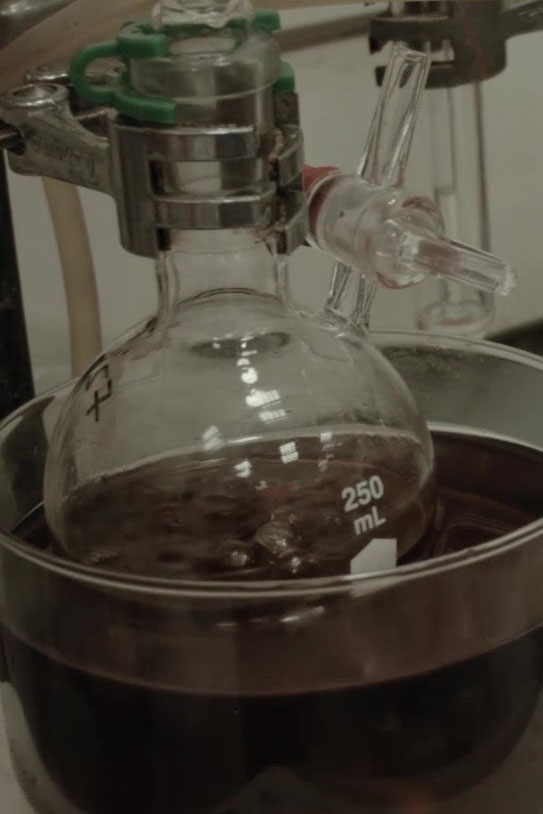
PROGRAM OVERVIEW
The curriculum leading to the degree of Bachelor of Science in Chemistry has been planned for students preparing for professional work in Chemistry and other related fields and who plan to pursue graduate studies in Chemistry. Students are required to take one or more lecture and laboratory courses in all of the core areas (Organic Chemistry, Inorganic Chemistry, Physical Chemistry, Biological Chemistry, and Analytical Chemistry). The curriculum of the BSc in Chemistry program is aligned with the guidelines set forth by the American Chemical Society (ACS) and the Royal Society of Chemistry (RSC). The program is structured to be in compliance with the first cycle of the “Bologna process”, adopted by the Republic of Kazakhstan, where students are required to spend between 1500-1800 hour workload per academic year. Furthermore, students will have unique opportunities to participate in cutting-edge research projects allowing them to gain experience in teamwork aimed at solving challenging problems. Apart from teaching essential lab skills, research-based learning will prepare students for graduate programs and/or employment in industry or academia by developing critical thinking, independence in planning and conducting experiments, and analyzing experimental data.
NU BSc Chemistry Student Outcomes (Program Learning Outcomes)
- Integrate fundamental principles, mathematical tools and experimental skills to identify, formulate and solve scientific and technical problems.
- Utilize scientific methods to formulate a system and/or design a process equipped with clear goals, specific tasks and risk analysis, participate in projects as a part of professional teams in order to achieve the desired progress.
- Employ a wide variety of experimental and theoretical approaches in all branches of chemistry to test hypothesis, develop in depth data analysis, interpret results and draw conclusions.
- Exercise ethical and professional conducts and understand the impact of chemistry related research results and technical solutions in global, economic, environmental, and societal contexts.
- Apply proper procedures and regulations for safe handling and use of chemicals and identify, recognize, and evaluate hazardous conditions and practices affecting people, property and the environment.
- Develop effective communication skills, to spread the research results to a large range of audience, analyzing current trends in the literature and developing scientific writing skills.
NU BSc Chemistry Program Educational Objectives
Within three to five years after graduation, our graduates from the NU Chemistry Program will aspire to. . .
- Apply their acquired knowledge and comprehension to discover complex problems and develop contributions to their companies and their communities.
- Apply their acquired knowledge and comprehension to solve advanced problems in a research context.
- Apply knowledge, experimentation, logic, and critical thinking to tackle unfamiliar problems that may arise from multidisciplinary professional contexts.
- Manage complexity even with limited information or resources and handle the problem by combining technical knowledge with an appreciation for the broad values of safety, sustainability, and integrity.
- Use strong interdisciplinary and collaborative skills to develop and present new ideas, knowledge, and research results for both professional and general audiences, and provide professional feedback to other researchers.
- Pursue continuous learning, driven either by the needs in research or by the challenge of solving complex problems of the industry.
CURRICULUM FOR STUDENTS STARTING AY 2020-2021
| Common core curriculum requirements (78 ECTS credits) |
|
| Additional Math Requirements (14 ECTS credits) |
|
| Core Chemistry courses (96 ECTS credits) |
|
| Chemistry Electives (24 ECTS credits) |
|
| Technical Electives (18 ECTS credits) |
|
| General Electives (12 ECTS credits) |
|
For students who want to minor in Chemistry
For non-Chemistry major students intending to declare a minor in Chemistry are required to complete the following minor-required courses worth 48 ECTS:
- General Chemistry I and II
- Organic Chemistry I and II
- Quantitative Chemical Analysis
- Descriptive Inorganic Chemistry
- Physical Chemistry I or Biochemistry I
For the B.Sc. in Chemistry Program Curriculum with student and program educational objectives, please click this link.
For more inquiries regarding the B.Sc. in Chemistry Program, please contact Dr. Timur Atabaev, the Bachelor's program director.
In the case of general inquiries, contact Prof. Vesselin Paunov, the department chair.







